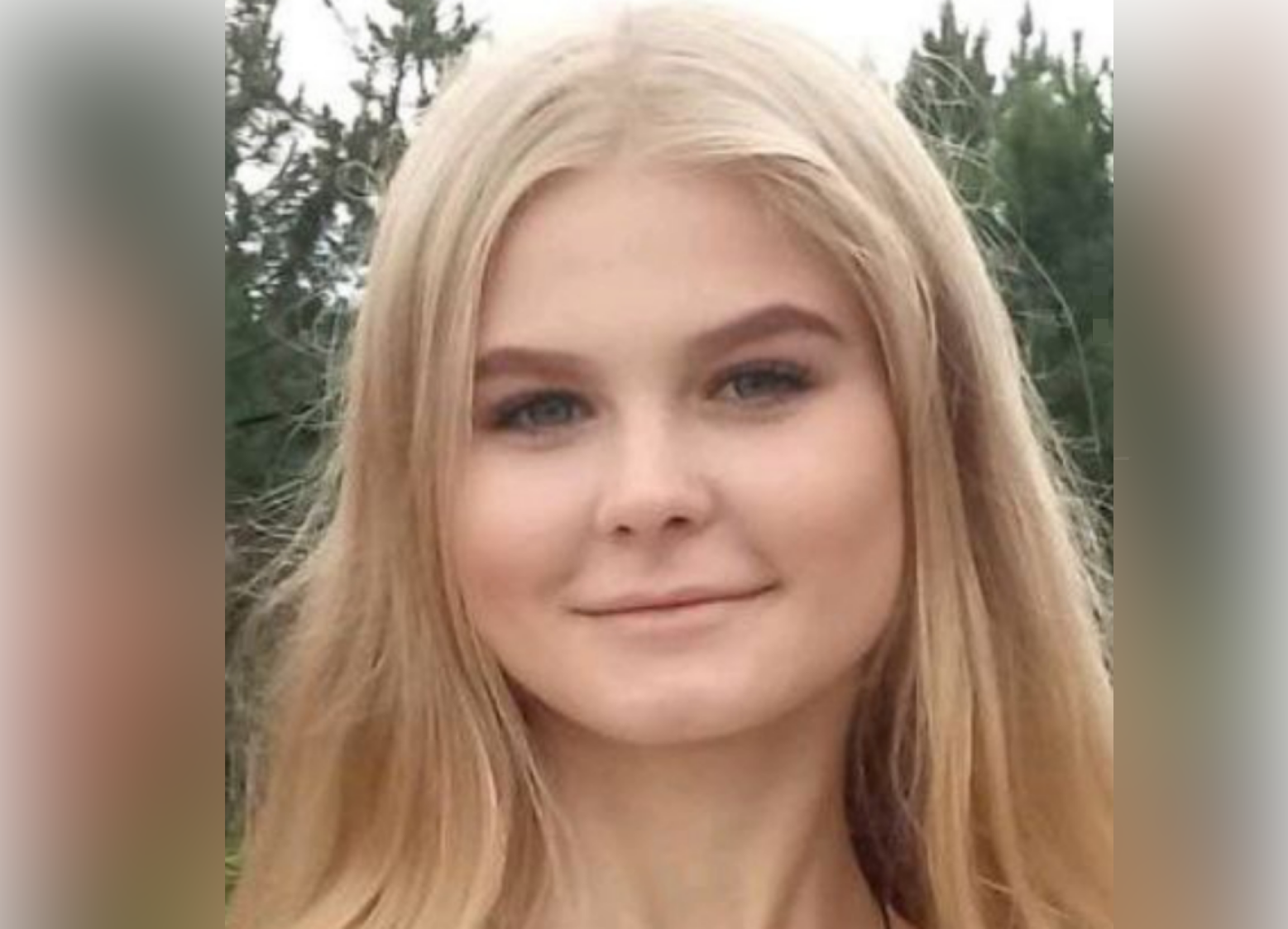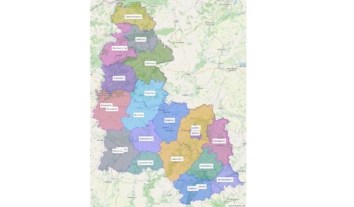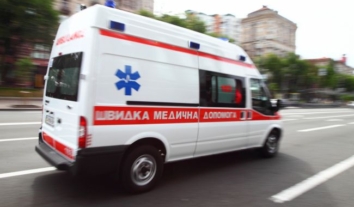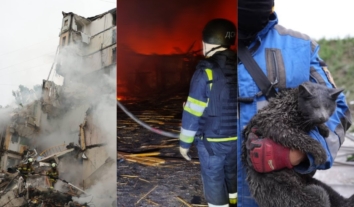Mariupol resident, Mariana Checheliuk’s health deteriorated significantly due to captivity
Mariana Checheliuk, a 24-year-old police officer from Mariupol, has suffered a significant deterioration in her health and immune system due to her extended stay in captivity. In August 2023, she was transferred from a prison in Taganrog to Mariupol, where she is still being held.
Mariana’s mother, Natalia Checheliuk, told ZMINA about this.
 A photo of Mariana Checheliuk from a personal archive of the family
A photo of Mariana Checheliuk from a personal archive of the familyAccording to Mariana’s mother, due to respiratory diseases and angina, Mariana developed complications that turned into a chronic form of bronchitis.
“I received a letter from Mariana in which she writes that she is very ill. At first, there was angina, which later turned into bronchitis. She was treated in the pre-trial detention center but was not fully cured. The doctors there started injecting antibiotics, which didn’t help much. Mariana lost a lot of weight, her immunity weakened, her hair began to fall out, and her periods disappeared,” says Natalia.
According to Natalia Checheliuk, her daughter wrote in one of the letters that during the two years of illegal imprisonment, she experienced a significant amount of torture: she was starved, beaten, and abused. Currently, it is tough for Mariana to be in the Kremlin torture chambers, both mentally and physically.
Mariana has not received a single letter from her mother, although Natalia constantly sends them. She still cannot understand why Mariana continues to be kept in complete informational isolation. The Russian detention authorities intentionally withhold information about her family as well as where she is being held and for how long. The last time Natalia spoke with her daughter was in August 2022, when she was still in Olenivka. Despite the difficulties with correspondence, they still transfer things and products to their daughter.
“My daughter has been detained illegally for the second year in a row without any reason. They won’t let her go for some reason. She did nothing wrong – she did not hold a weapon in her hands, she was not a participant in hostilities, and she did not kill anyone. What is the reason? She was kidnapped, taken away, kept in Russian prisons, and not returned. How so ?” Mariana’s mother, Natalia, tries to understand.
Relatives went to the office of the International Committee of the Red Cross in Geneva, where they asked its representatives to help free Mariana from captivity. Despite the promise to facilitate the release of the daughter from captivity, nothing has been done. Natalia does not understand why the UN and ICRC are needed if they cannot do anything. She got the impression that, for them, the Russian Federation was an authoritative country that they were afraid to disturb. Additionally, the family has repeatedly appealed to release Mariana from the captivity to the Ukrainian and Russian authorities.
“We met with the Ukrainian consul in Switzerland, Iryna Venediktova. I asked her not only about my daughter but also about all captured women, wounded Azov battalion POWs, and soldiers. But in response, I heard that they cannot influence Russia,” Natalia said sadly.
The Checheliuk family was distraught because Mariana’s last name was not on the list of the recent prisoner exchange [occurred on January 3, 2024]. The parents continue to fight for their daughter’s release.
Natalia appealed to Ukraine’s Coordination Headquarters to help her free her daughter, who needs urgent medical care, as soon as possible.
“They tried to drag my daughter over to the Russian side both with sweet promises of a big salary and with intimidation. But she refused,” Natalia concluded.
ZMINA has previously reported on the issue of Mariana Checheliuk’s illegal detention. Mariana and her sister Alina were born in Mariupol. The older sister, Mariana, studied at the Kharkiv National University of Internal Affairs and, after completing her studies, returned to her hometown to enter the police school. Subsequently, she became an investigator in the Zhovtnevyi District of Mariupol, where she performed her duties for approximately a year until the launch of the full-scale invasion on February 24, 2022. Her hobbies included volunteering at the local zoo and feeding street animals.
On March 25, 2022, during the Russian bombardment of Mariupol, the sisters found refuge in the “Azovstal” warehouses, while the parents did not make it and stayed on the other side of the combine – near the bread factory. There has been no communication in the city since the beginning of March, so parents could not call Mariana and Alina.
When civilians were evacuated from Azovstal, UN and ICRC representatives promised to take Mariana and Alina to Zaporizhzhia. Still, they were taken to the village of Bezymenne near Mariupol for filtration. This happened on May 1, when a humanitarian corridor was organized for civilians. Hundreds more Mariupol residents left the shelter with the girls.
The family managed to free their younger daughter. The Russian occupying forces allowed Alina to call her parents. The representatives of the Russian military also said that if they did not take the daughter within 24 hours, she would be transferred to an orphanage, as she was a minor.
Mariana was promised to be returned in two days, then in a week, and then the Russians began to deny that they were holding her. Alina told her parents that on May 1, they both went through filtration in the afternoon. Then they were placed in a tent camp, and at 9 p.m. on the same day, a representative of Russia’s Federal Security Service (FSB) allegedly came to them and took Mariana away. There is information that the girl was forced into a car and taken to Donetsk.
During the eight months of detention, there was only one call from Mariana to her parents. During the short conversation, she managed to ask what happened to her sister. The family thought the Russian military blackmailed her on this basis.
Later, it was reported that Mariana was allegedly kept in solitary confinement in Donetsk for two months, then transferred to the village of Olenivka, to the 120th colony, and then to the detention center in Taganrog, Rostov region.
ZMINA Human Rights Center, together with Ukrainian and international partners, documents incidents of enforced disappearances, detentions, and abductions of civilians in the temporarily occupied territories of Ukraine. If your relatives have disappeared or you have fears that they might have been kidnapped, please write to our e-mail address es@humanrights.org.ua. Our representative will contact you.
With the consent of the applicant, the received information will be used for appeals to national and international investigative bodies, as well as international organizations, in particular to the United Nations (UN) Committee against Torture, the UN Independent International Commission of Inquiry into the Events in Ukraine, the UN Monitoring Mission on Human Rights in Ukraine, the International Criminal Court, etc. to document and further investigate war crimes committed in Ukraine and bring the guilty to justice.








